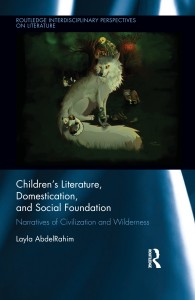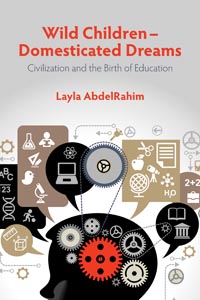I am an independent scholar and author with no institutional funding. Please, consider supporting me on Patreon so I can continue to do the work. Thank you!
Response to critiques of Avatar that accuse it of scientism and racism
John Zerzan discussed my review of Avatar on Anarchy Radio on Tuesday the 29th, December ‘09 and continued the discussion of the film throughout January, after he’d seen it. This has generated a lively debate on the various aspects of the film and the position of film medium in revolutionary thought.
On the 26th of January 2010, I called Anarchy Radio to respond to some of the critiques that saw Avatar as presenting a skewed and racist position in its critique of civilisation. While, I admit that the fact that the maker of the film is yet another white male and that he would more often be trusted with the funds to make a “quality” movie than a woman of colour, the cast, nevertheless, is extremely variegated in terms of ethnic composition. Most important, though, Cameron attacked the very premise of discriminatory classification so foundational in scientific and religious thought alike. Also, he presents the scientifically created hybrids – avatars – as inferior to the magnificence of the local forms of life and their cultures and not as the model for future worlds.
Because of the limitation of radio time, I couldn’t discuss all the elements of my argument during my call, so, I would add here that, not only Cameron attacks the basic premise of discrimination and speciesism, but goes beyond the claims of Negritude, feminist and gay pride movements that embraced the stereotype constructed of them by the dominant culture and which therefore succumbed to the racist or discriminatory “knowledge” of the self by the oppressor. The Na’vi do not respond to the knowledge constructed of them by the invaders, but continue to live with their own knowledge about themselves. The anthropologists and the scientists fail to construct an oppressor’s model of knowing the Na’vi and hence fail to domesticate them with schools and roads. Jake gets initiated into their knowledge on their terms and outside of the civilised human paradigm that sees the animal species as inferior in knowledge and “complexity” to civilised human beings. By presenting the Human as part of the animal world, Cameron attacks the construct of speciesism itself, a construct that is vital for the construction of humanism and which discriminatory practice furnishes the philosophical foundation for all “isms”: sexism, racism, animalism, etc.
I made a comment on the radio about the failure of the Soviet art and literature medium to create a real revolution. I’d like to clarify this point, lest it be taken as a denial that a revolution is possible or had indeed ever taken place. Comparing at least two milieus: children’s literature and film comedies that were produced during the 20th cnetury (most of which in Russia was Soviet) with the same genres produced in the «West», the depth of the critique, frequently anarchist, and the quality of perspectives and empathy depicted in Soviet children’s literature and adult cinematic comedies is beyond comparison with the Western counterparts of the same period. There are various possible explanations for this phenomena (some of which I’m addressing in my current research), but what is interesting is the extent to which in just a few years formerly Soviet culture has reverted to dogmatic violence, racism, and xenophobia, to a large extent, exported from Disney and Hollywood.
Is this a problem of the limitations of the genre? Of the Medium? Of general «education»? Or, as Darwinist pessimists would enthusiastically chime into the chorus: this is in the nature of things? Or, is the secret of violence encoded in the representative form itself and in the symbolic nature of communication at the basis of art?
There’s something more to say about the Russian works of art in connection with Avatar. I mentioned Tarkovsky’s Solaris in my review and Bill Weinberg, the host of The Moorish Orthodox Radio Crusade, connects Avatar and indigenous struggles to Ursula K. Le Guin’s 1972 science fiction book, The Word for World is Forest. Le Guin, however, fails to mention her predecessors from, at the time, the Behind the Iron Curtain.
In the 1960s, two brothers, Boris and Arkady Strugatskys were prolific Soviet sience fiction writers. One of their most famous stories ended up in Tarkovsky’s film Stalker. Various of their works were adapted to Soviet and European films and themes from their books are echoed in, both, Avatar and Le Guin’s novel. For example, in their novel Noon: 22nd Century, published in the mid 1960s in the World of Noon cycle, the Strugatskys depict little green people (Le Guin’s book almost a decade later depicts similar little green creatures as well) and in their book, Disquiet, a biologist named Mikhail Sidorov goes to live among the Nave, canine-like aborigines, on a distant tropical-type planet Pandora. Cameron’s Pandora is inhabited by feline-like Na’vi on a tropical-like moon Pandora. However, the similarities end here, for, the Strugatskys fail to make a critique of civilisation to which Cameron commits his film. And even in Stalker, Tarkovsky had «translated» and added depth in the philosophical masterpiece that his film turned into. In fact, these are some of the instances that refute the usual expectation for an original book to be better than its film adaptation.
Finally, I agree with Kathan Zerzan’s comment on the radio on the 19th January that there is an additional problem with Cameron’s depiction of the Na’vi as a warrior society and I do not know whether he depicted them as living under/with royalty and warriors because he could not imagine a society that wouldn’t need to respond to war and that could exist without hierarchy or whether the Na’vi have become militarised in response to their initial encounter with the alien civilisation and hence they needed to face war and violence with violence. This is an existential question that all aboriginal societies face: do we “remain” as we interpret ourselves to have been from the amalgam of depictions of our past prior to colonialism and invasion or should we be included in civilisation’s economy on “par” with the civilised. In other words: who are we and who do we become? In the end, having been infected with war, can we ever fully undo our trauma and heal?
(I call at minute 1:05)
Also, here’s an open letter to James Cameron.
Filed in: Uncategorized.









